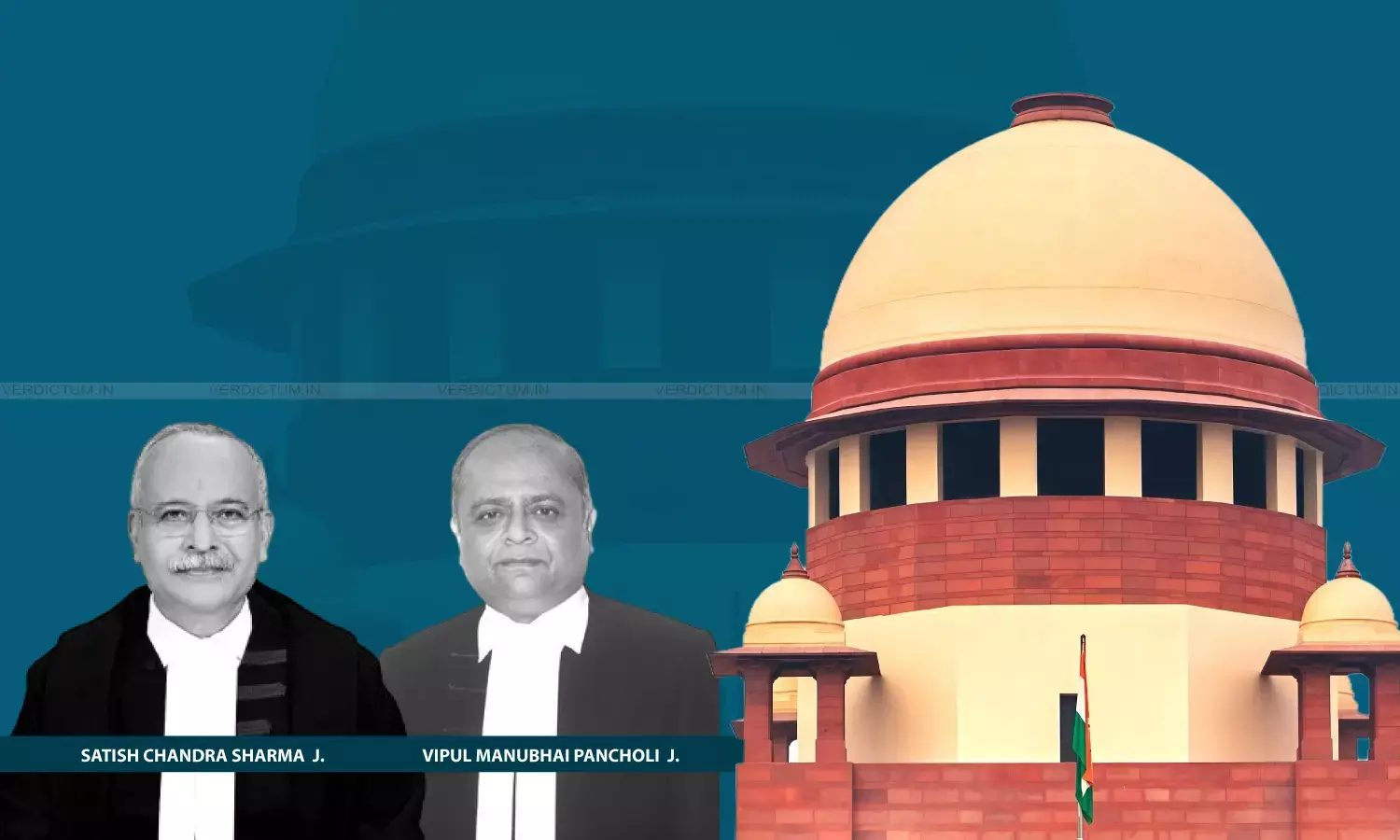Rights Accruing To Auction Purchaser After Confirmation Of Sale Cannot Be Disturbed Except For Proven Fraud Or Substantial Irregularity: Supreme Court
The Apex Court held that upon confirmation of a revenue sale, statutory rights accrue in favour of the auction purchaser, which cannot be undone unless fraud or substantial irregularity is established under the Revenue Recovery Act.

The Supreme Court has reiterated that once a revenue auction sale is confirmed by the competent authority, rights accrue in favour of the auction purchaser, and such rights cannot be set aside except upon proof of fraud or substantial irregularity in the conduct of the sale.
The Court was hearing an appeal challenging the dismissal of writ proceedings and a review petition by the Madras High Court concerning the auction of immovable property under the Tamil Nadu Revenue Recovery Act, 1864.
A Bench comprising Justice Satish Chandra Sharma and Justice Vipul M. Pancholi, while referring to Valji Khimji v. Hindustan Nitro Product (2008), reiterated that “once a sale is confirmed by the competent authority, rights accrue in favour of the auction purchaser which cannot be extinguished except in cases of proven fraud or substantial irregularity”.
Senior Advocate T Raja represented the appellants, while Advocate Sabarish Subramanian, AOR represented the respondents.
Background
Revenue recovery proceedings were initiated for statutory arrears arising from arrack shop licences taken in 1972–73 by the deceased husband of the appellant. An ex parte decree for recovery was passed in 1987. After the appellant’s husband died, recovery proceedings continued, and auction notices were issued in 2005 for the attached properties.
The appellant and her son filed writ petitions before the Madras High Court, during which interim orders were granted. Notwithstanding these proceedings, the revenue authorities conducted a public auction on 29.07.2005, and respondent no. 4 purchased the property. The sale was confirmed on 23.07.2008.
The High Court dismissed the writ petitions, writ appeals, and a review application on the ground that the appellant had not applied to set aside the sale under Sections 37-A or 38 of the Revenue Recovery Act within the mandatory 30-day period.
The present appeal challenged these findings.
Court’s Observation
The Supreme Court examined the statutory framework governing revenue sales under Sections 37-A and 38 of the Revenue Recovery Act. Both provisions, the Court noted, provide complete mechanisms for setting aside a sale and prescribe a mandatory 30-day limitation period.
The bench held that it was undisputed that no application was filed by the appellant under either provision within the statutory period. The Court therefore held that the limitation bar applied squarely.
The Court further held that the interim order of the High Court only stayed the confirmation of the sale and did not stay the auction itself. Consequently, the statutory obligation to file an application under Sections 37-A or 38 was unaffected.
The Bench then considered the legal position relating to the rights of an auction purchaser upon confirmation of sale. Relying on Valji Khimji, the Court reiterated that once a sale is confirmed by the competent authority, rights accrue in favour of the auction purchaser which cannot be extinguished except in cases of proven fraud or substantial irregularity.
The Court held that in the present case, the appellant had not established any fraud, irregularity, or mistake in the conduct of the auction. The purchaser had deposited the full amount on the date of the auction, and the sale was confirmed after due process.
The Court also noted that the property had been registered in the auction purchaser’s name and subsequently transferred to bona fide purchasers, further reinforcing the finality of the transaction.
The Bench reaffirmed that interim directions issued during writ proceedings could not substitute the statutory requirement of applying within 30 days, as mandated by the Revenue Recovery Act. Payments deposited during writ proceedings, the Bench remarked, could not cure the failure to comply with Section 37-A.
Consequently, the Court endorsed the High Court’s finding that the appellant’s belated attempt to challenge the sale was legally impermissible and that the statutory scheme did not permit collateral attacks after the limitation period elapsed.
Conclusion
Holding that the appellant had failed to exhaust mandatory statutory remedies within time and that the confirmed sale had created rights in favour of the auction purchaser, the Supreme Court upheld the orders of the Madras High Court.
The Court dismissed the appeal, observing that no fraud or substantial irregularity had been demonstrated to justify disturbing a sale that had already been confirmed and acted upon.
Cause Title: Kolanjiammal (D) through LRs v. Revenue Divisional Officer, Perambalur District & Others (Neutral Citation: 2025 INSC 1319)
Appearances
Appellant: Senior Advocate T Raja, with Advocates Mary Mitzy, Elizabeth Mathews, Oleander D Singh, Pratham Sadh, Ashutosh Jha, AOR
Respondents: Advocates Sabarish Subramanian, AOR, Rashmi Nandakumar, AOR, Anindita Mitra, Yashmita Pandey


